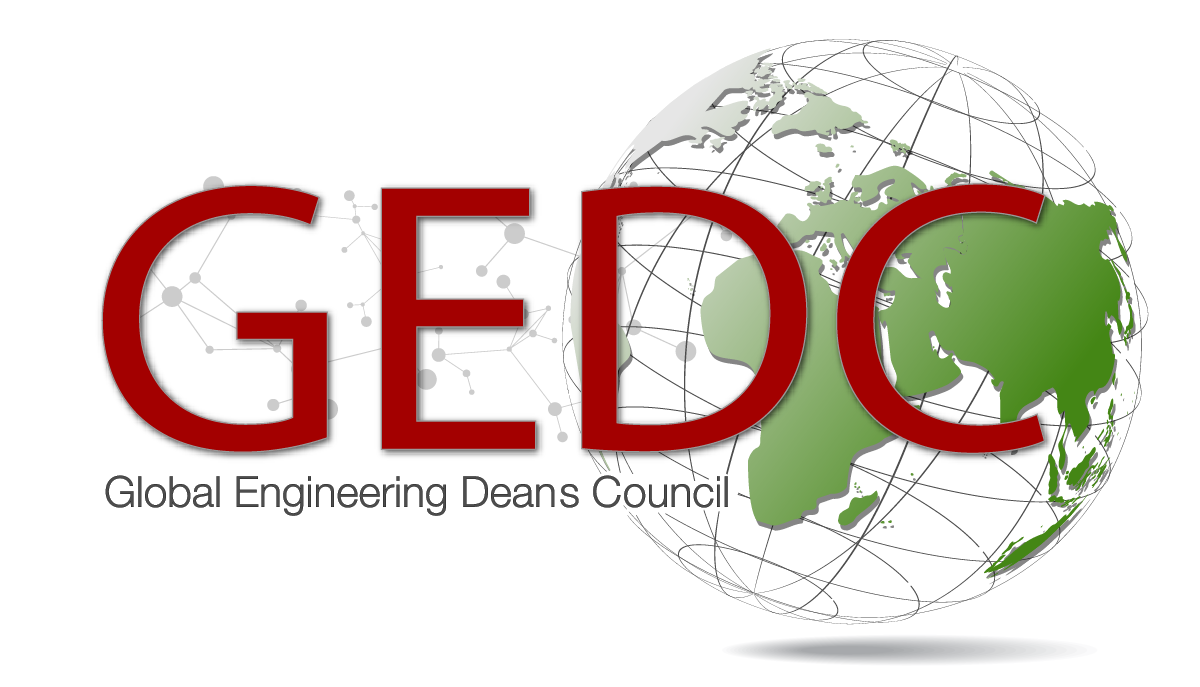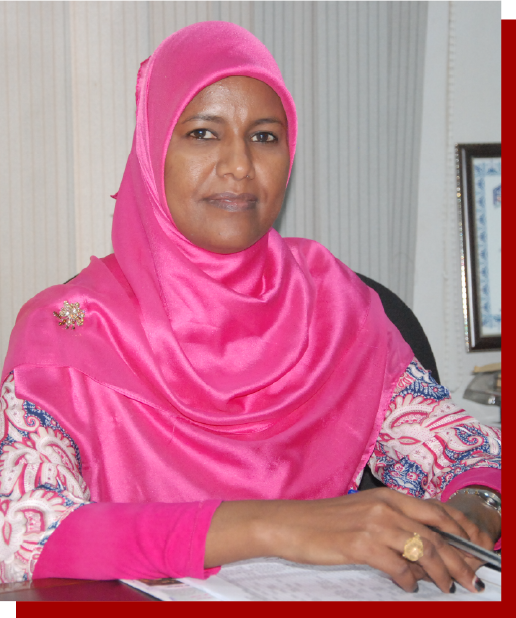Could you share some details about the Sudan University of Science and Technology and your engineering programs?
Sudan University of Science and Technology is a public university located in Khartoum, deeply rooted since 1902, when it was known as the Khartoum Technical School and School of Commerce before becoming the Khartoum Technical Institute (KTI) in 1950. In 1975, all of the technical institutes in Sudan were merged with KTI to form what was known as Khartoum Polytechnique (KP). In 1990, the KP was upgraded to a university named Sudan University of Science and Technology (SUST).
Currently, SUST is comprised of 25 colleges across10 campuses with about 140 academic programs at the B.Sc level, 60 diploma programs and more than 200 postgraduate programs. In 2018, the total student population was approximately 32,000 at the B.Sc. level and 30,000 at the diploma level, 11,000 postgraduate students and 5,000 students enrolled in distance education programs. SUST includes creative and unique colleges in Sudan, such as the College of Music and Drama and the College of Fine and Applied Arts. There are five Colleges of engineering and the College of Petroleum Engineering and Technology (CPET)—where I am acting as a dean—is one of these colleges.
CPET was based on the Department of Petroleum Engineering (PE), which was founded in 1992 as part of the College of Engineering and as the first and unique department in this specialization in Sudan. In 2003, the PE department was upgraded to the College of Petroleum Engineering and Technology with three departments including PE, Exploration Engineering and Refining and Transportation Engineering. In 2019, a new department for Mining Engineering was established in CPET and the college has been renamed as College of Petroleum and Mining Engineering (CPME) with four B.Sc. programs. The College is also taking the technical responsibility for three diploma programs and four postgraduate programs in various disciplines of petroleum engineering.
What are your most promising or successful initiatives or programs that have been implemented while you have been dean? What has made it successful? What were/are the challenges?
Since my appointment as dean of the college in November 2014, I have focused on solving some problems of the College that I considered intractable for years. For example, the biggest challenge was the lack of basic laboratories in the college, which has been unsuccessfully requested annually from the SUST Central Laboratories as the oil laboratory equipment is considered the most expensive. In 2015, a plan was developed to focus on priorities to divide the requirements of the devices into two categories: the first one is the urgent and basic needs to be used by all students in CPET and can be utilized by students from other colleges as well. The second category is the specialized devices to serve students of different CPET departments. My detailed presentation to the university top administration offices succeeded in approving the establishment of an integrated laboratory for geology and sedimentology and for the provision of basic equipment at the laboratory of oil properties. Nevertheless, the challenge of purchasing specialized and sophisticated analytical equipment for certain labs still persists despite the many attempts I have made in this direction.
The other things that I have been concerned about include the improvement of scientific research and collaboration with the industry, building up relationships with international universities and institutions, as well as strengthen the links of the college with the alumni. Although the industry is a key partner of the educational process, the oil industry in Sudan did not provide a tangibly societal role required for petroleum engineering education in Sudan, despite the presence of a large number of CPET graduates as top leaders of the oil companies and within the Ministry of Oil and Gas in Sudan.
I worked to strengthen confidence in the college programs by creating relationships with some experts in Petroleum Engineering and established a 2+1+2 program at the bachelor’s level with the China University of Petroleum – Beijing (CUPB). Annually, five of CPET’s top students who have completed their second year at CPET transfer to CUPB to obtain their B.Sc. degree. Presently, three batches have been already transferred and this agreement is a continued success, as most transfer students have exceeded CUPB’s expectations. Additionally, I have established a solid relationship with Texas A&M University Petroleum Engineering Department, which is known as one of the world’s best petroleum engineering programs, and with the university’s Gas & Fuels Research Center. As a result of this collaboration, I was able to recruit a senior professor of Sudanese origin from Texas A&M to join our faculty as an adjunct professor. They are helping us review our academic curriculum and establish excellence in research and teaching while helping us to develop a mechanism of building up collaboration with industry. Moreover, I have the pleasure of spending nearly three months as a research fellow at the main campus of Texas A&M University in College Station, Texas (USA).
Furthermore, I have been interested in participating with international engineering bodies where I established a student chapter for Industrial Engineering and Operation Management Society (IEOM) while giving special attention to the Student Chapter of the Society of Petroleum Engineers (SPE) activities. Furthermore, I have been very active in the GEDC, SPE, and IEOM. I encouraged the teaching and research staff at CPET to participate in the membership of SPE and offered to pay their membership fees for the first year. To achieve my goals, in May 2018 CPET organized the Petroleum Forum and Exhibition Event jointly with the Silver Jubilee Celebration for the Establishment of Petroleum engineering Education in Sudan. The forum and exhibition were an engineering demonstration that strengthened the relationship with industry and confidence in the hearts of students with an unprecedented rally of alumni around the college. Most oil national companies and a number of foreign companies working in Sudan participated in this event. Also, one of the outcomes of this forum was the compatibility with the oil industry on the establishment of the Sudan Oil and Gas Research Center, which is our initiative for the College of Petroleum and Mining Engineering. This center is meant to become a national hub for R&D in oil and gas in Sudan.
How does the Sudan University of Science and Technology engage and collaborate with industry? How do you prepare your students for industry?
SUST owns many laboratories, workshops and farms. It also has exhibitions, ceremonies, radio, theater and specialized fields as well as relationships, partnerships and agreements with a large number of industrial institutions inside and outside Sudan, which are working to fill the training shortage of students through them. There are several training and continuous education programs. For example, students of petroleum engineering have training in oil fields with the operation and service oil companies, students of nuclear engineering spend a period of training at a university in Malaysia. Students of textile engineering spend their training period in textile factories in Sudan. Most post graduate students work to solve real problems in the Sudanese industry and there is some joint research between academia and industry. Although there are many agreements signed between the university and industry, implementation is still minimal and often depends on personal relationships. In Sudan—specifically after revolution—we look forward to improving this relationship to become institutional and sustainable.
The University has obliged all colleges to insert the international computer driving license (ICDL) in the curriculum for all the academic programs and is now planning to introduce a topic related to entrepreneurship and intellectual property rights into curricula. The Deans’ Council also discussed the application of the Test of English as a Foreign Language (TOEFL) as an important tool to improve student writing and communication skills in the English language.
What are some “grand challenges” facing students in Sudan and your region and how is SUST preparing students to solve these challenges?
I think in general the grand challenge for Sudan and our region is political and economic instability, which caused the frustration that became the seed of a peaceful public revolution in December 2018.
The challenge for students in the region is the lack of practical training because of the limited facilities and infrastructures in the universities. The effects of the sanctions imposed on Sudan are still present and have isolated Sudanese universities from the developed world academic institutions, specifically in areas related to technology. Unfortunately, even the faculties need to train, exchange experiences and transfer knowledge.
The other challenge is to change the thinking of students in my region to move from thinking about the job search to thinking about creating jobs. However, the academic institution needs to develop curriculum with creative development, entrepreneurship and technological benefits as examples may help with this challenge.
What are some “grand In your opinion, what are some of the significant issues/topics that should be addressed by the global engineering community—particularly by engineering deans—in order to further strengthen inter regional communication and continue to globalize this field of study?
In your opinion, what are some of the significant issues/topics that should be addressed by the global engineering community—particularly by engineering deans—in order to further strengthen inter-regional communication and continue to globalize this field of study?
Your article on your experiences as a female engineering leader in Sudan for our April 2017 issue of GlobalEngineer has inspired the book, Rising to the Top: Global Women Engineering Leaders Share their Journeys to Professional Success. Why do you think it is important for women and other underrepresented groups in engineering share their experiences?
I think any woman who shared her experience in the book has special and unique experience. Each one of them faced many challenges and explained how she overcame these obstacles. These experiences are useful to all who read this book regardless of whether they are women or men. My experience has many environmental and traditional challenges that may differ from the experiences of women from developed countries, but it gives an idea of the reality of my region and may inspire women from my environment and show them how ambition shouldn’t stop.
Is there anything else you’d like to share with our global engineering community?
Sudan has recently moved to a new phase, to which most of the Sudanese people are looking positively with ambitions to the future. Sudan may not achieve much without the support of the international community. The engineering sector in Sudan needs to develop a different strategy and build institutional and sustainable plans that can move the country from its current situation to become a leading African nation. It is my pleasure to extend the invitation to all institutions, organizations, and interested engineering bodies to support engineering education in Sudan so that it can play its role in the renaissance of the new Sudan.

